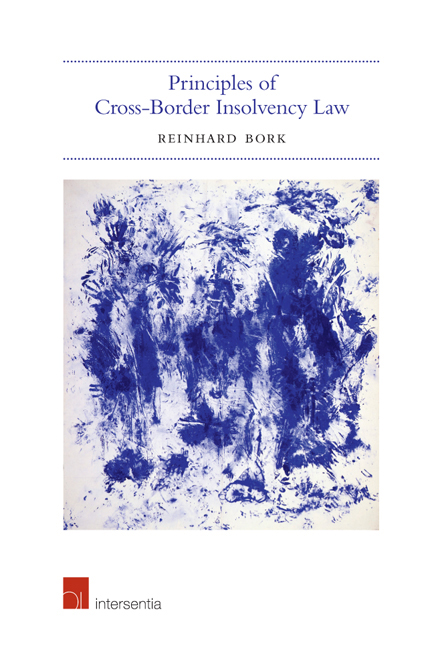Book contents
- Frontmatter
- Dedication
- Foreword
- Preface
- Contents
- Table of Abbreviations
- Table of Cases
- Chapter 1 Setting the Scene
- Chapter 2 Jurisdictional Principles
- Chapter 3 Procedural Principles
- Chapter 4 Substantive Principles
- Chapter 5 Interim Results
- Chapter 6 Conflict of Principles
- Chapter 7 Principles and Harmonisation
- Chapter 8 Concluding Remarks
- Literature
- Index
- About the Author
Chapter 3 - Procedural Principles
Published online by Cambridge University Press: 22 September 2018
- Frontmatter
- Dedication
- Foreword
- Preface
- Contents
- Table of Abbreviations
- Table of Cases
- Chapter 1 Setting the Scene
- Chapter 2 Jurisdictional Principles
- Chapter 3 Procedural Principles
- Chapter 4 Substantive Principles
- Chapter 5 Interim Results
- Chapter 6 Conflict of Principles
- Chapter 7 Principles and Harmonisation
- Chapter 8 Concluding Remarks
- Literature
- Index
- About the Author
Summary
Insolvency proceedings are – by their very labelling – procedures, which are mostly conducted by the national courts. A procedure, defined in a legal sense, is an organised and structured way of coming to a particular legal decision, based on certain principles. Procedures typically (albeit not necessarily) start with an application (to a court or other authority), are managed and supervised by official bodies, include enforceable decisions of the authority and are designed to grant legal protection, in case of insolvency proceedings this being of the creditors against the debtor, who is no longer capable of paying their debts voluntarily. Under the rule of law, procedures follow certain basic principles. Even where the legislator leaves the configuration of the procedure to the discretion of the responsible authorities, without any further statutory elaboration, judges and other official bodies are not free to act arbitrarily but are bound by legal procedural principles, such as treating all parties equally or conferring the right to be heard. This also holds true for insolvency proceedings, even where they have cross-border effects. This has been correctly stated by Virgos/Schmit, who recommend taking into account ‘the ’general principles of procedural law ‘which are valid in all Member States ’where disputes on international jurisdiction arise under the European Insolvency Regulation.
Procedural principles are of specific importance for creditors assessing the transaction costs when calculating the necessary consideration for their contractual performance. Reasonable creditors will – seen from an ex ante perspective – consider the risk of the counterparty becoming insolvent. These risks comprise not only the probability of the contractual partner's inability to pay debts but also the difficulties in exercising the creditor's rights in any resultant insolvency proceedings. If insolvency proceedings are necessary, they should at least be efficient, transparent, predictable and just. If procedural law enforces these principles, this can contribute to the availability of credit and to the reduction of credit costs. Creditors deliberating an international transaction will be more inclined to enter into such transactions and to grant credit to the foreign contractual partner if they can be assured that in the event of insolvency, reasonable and adequate cross-border insolvency proceedings will be available, which follow helpful procedural principles and enable creditors to exercise their rights properly.
- Type
- Chapter
- Information
- Principles of Cross-Border Insolvency Law , pp. 77 - 112Publisher: IntersentiaPrint publication year: 2017



